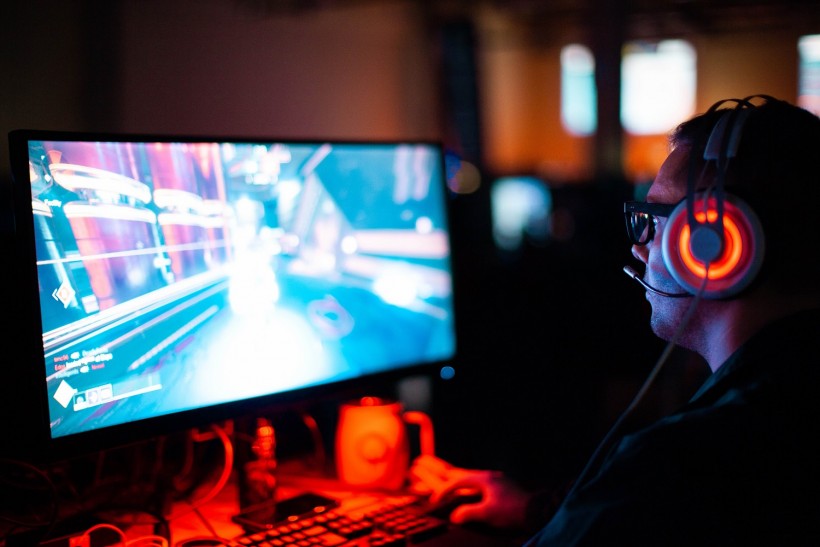A study on 2,000 British people has found that average adults spend about 34 years of their lives glued to the screens.
Over 4,866 hours a year are spent on phones, laptops, and televisions or a total of 301,733 hours over the average adult lifetime of 62 years.
British people own numerous gadgets nowadays, and they certainly know how to spend time on each of them.

Person using computer playing FPS game
ALSO READ: [BREAKING] Qualcomm Displays Newest Snapdragon 768G 5G With Boosted CPU and GPU
On average, they watch TV for up to three and a half hours a day, work on their laptops for at least four hours staring at laptops, then check on their mobile phones for two hours and 25 minutes gazing.
While electronic reading and gaming devices contribute consumes more than 13 hours a day, people still believe less than half the time they spend on these devices is 'productive.'
However, 64% admitted they would not know what else to do without their devices, particularly as they stay at home during the lockdown. Another 17% would feel anxious if they spend away from their phone for too long.
"We're lucky to have devices that connect us with the outside world. A similar pandemic taking place 30 or 40 years ago would have seen people coping with the lack of contact in very different ways," said Benjamin Dumaine, optician and head of business development for Vision Direct, which funded the study.
The eye care concerns
Meanwhile, Dumaine pointed out that excessive screen time can affect eye health. Thus, he suggests the government should promote exercising to help give an essential screen break.
The study also found an average adult spends less than 20 minutes on their screen after waking up with about a third taking a glance within five minutes. They spend the most time on laptops or computers, followed by phones, TVs, and tablets.
Under a tenth of people feel 'surprised' by how much screen time they get through, which 19% consider as worrying while more than half feel a strain on their eyes while spending too much time looking at screens. Meanwhile, 40% rarely remember to rest their eyes hourly, and 12% never take a break.
Vision Direct has launched nine helpful tips on how to manage eye health at home. These include positioning a computer screen at least 40 cm away and following the 20-20-20 rule. This rule suggests taking a break every 20 minutes, looking away for 20 seconds, and starting at a figure 20 feet away.
Dumaine added that there are both positives and negatives effects of screen time. "[But] as long as people are mindful of when to limit use, there doesn't need to be any long term damage," she said, adding that these devices now play a valuable part in our lives, although people must follow guidelines to maintain good eye health.
Screen time versus family time
Aside from health issues, the research found too much screen time can also affect relationships and family time.

man and woman sharing mobile screens
Less than 25% of those in relationships have argued with their partner because of too much screen time, 40% of parents complain about their kids' mobile gaming while 20% have a hard time managing their screen time.
Meanwhile, 12% of respondents feel guilty about allowing their kids to watch TV or computers. Moreover, about 70% "feel hypocritical" for asking their kids to limit their screen time, although they "are just as guilty."
Instead of investing in glare glasses for their children, it is important to set a screen time schedule while having an open discussion between parents and children, where they could discuss everyone's feelings.
"In this new reality, parents are going to have to do some trial and error to figure out what is 'just right' for everyone," says Dr. Doron Almagor, a psychiatrist and the director of Ontario's Possibilities Clinic adding that screen time is not always bad.
"Research shows that individuals who are anxious or depressed can become more so if they don't stay socially connected. And right now, digital connectivity is all we've got," Almagor told Now Toronto.
Read also: Watch The Viral Coffin Dance With "Coronavirus" Patient Gets Heavily Criticized








